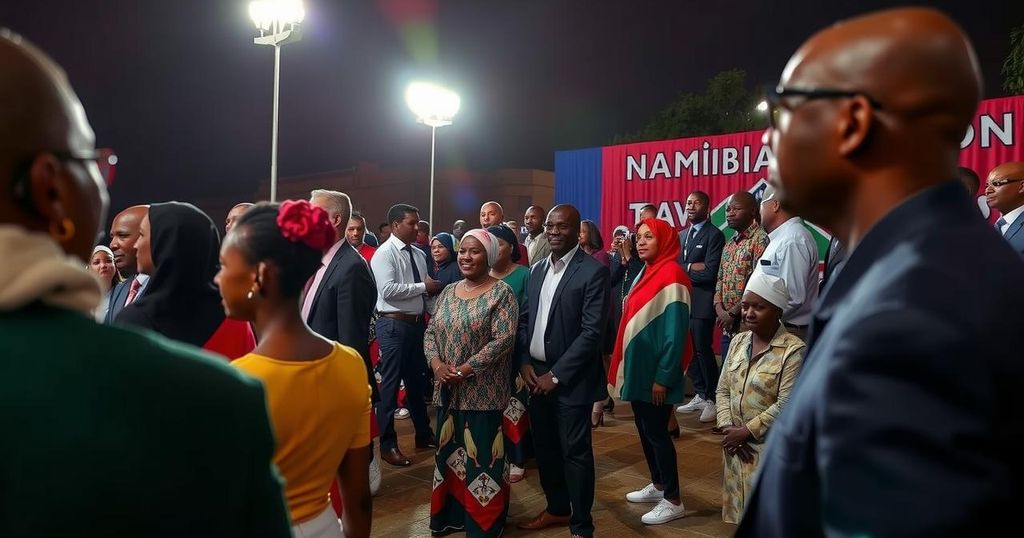Namibia’s Opposition Demands Suspension of Voting Amid Disarray

Namibia’s November 2024 elections faced widespread confusion due to logistical failures and long delays, prompting opposition parties to demand the suspension of voting and ballot counting. As SWAPO faces its strongest challenge in over three decades, rising dissatisfaction over social and economic issues, particularly among the youth, has intensified calls for change. The outcome may signal a pivotal moment in Namibia’s political history.
On November 28, 2024, officials at polling stations across Namibia faced significant challenges as the nation embarked on its crucial presidential and legislative elections. With the ballot counting commencing late due to logistical issues, the opposition parties, led by Christine Aochamus of the Independent Patriots for Change (IPC), urged a suspension of both the voting and counting processes. Given the long lines that forced polling stations to remain open past the scheduled closing time, citizens expressed their discontent with the efficiency of the Electoral Commission of Namibia (ECN).
Instances of confusion emerged as some polling stations prematurely began to announce results while others reported interruptions in counting. Aochamus emphasized the disorganization, stating, “We’ve got polling stations that are releasing results, we’ve got polling stations that are telling us that they were told to stop with the counting of votes.” These concerns were echoed among voters who spent extensive hours waiting to cast their ballots, with some able to vote only into the early hours of the following day.
The IPC criticized the ECN for allegedly suppressing voter turnout, alleging deliberate attempts to hinder the electoral process. The fierce competition this election poses for the ruling South West Africa People’s Organisation (SWAPO), led by vice-president Netumbo Nandi-Ndaitwah, marks a significant moment in the political landscape of Namibia, which has faced rising dissatisfaction among its populace over issues such as unemployment and social inequality. Analysts suggest that if Nandi-Ndaitwah fails to secure a majority, the election could result in a second voting round, indicating a potentially historic shift in power dynamics.
Namibia has experienced 34 years of uninterrupted governance by SWAPO since its independence from South Africa. This election serves as a critical moment for the party amidst mounting dissatisfaction over high unemployment rates and economic disparity. Young Namibians, particularly those aged 15 to 34, face unemployment rates estimated at nearly 46 percent, significantly higher than the national average, highlighting the urgent socio-economic challenges that affect electoral sentiments. This election is viewed as a pivotal test for the incumbent party as it contends with strong opposition, signaling a potential change in leadership that could redefine the country’s political framework.
The November 2024 elections in Namibia reveal a significant disconnect between the Electoral Commission and the electorate, as exemplified by the extensive delays and logistical problems that marred the voting process. Opposition parties have called for immediate action by the ECN to address their grievances, emphasizing the urgent need for electoral integrity. The election’s atmosphere, characterized by discontent and a push for change, suggests a potential for historical shifts in Namibia’s political landscape, should the discontent persist and impact the overall election results.
Original Source: www.seychellesnewsagency.com







